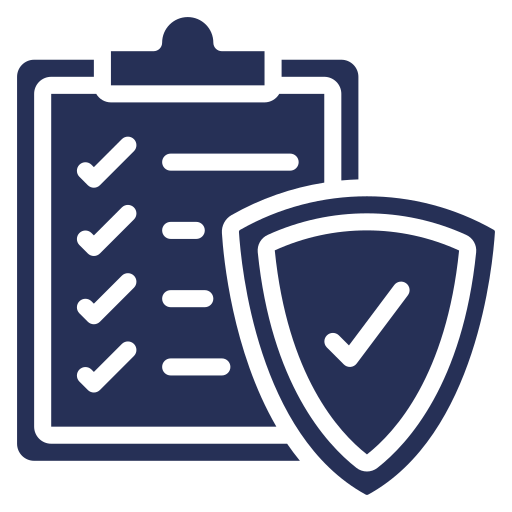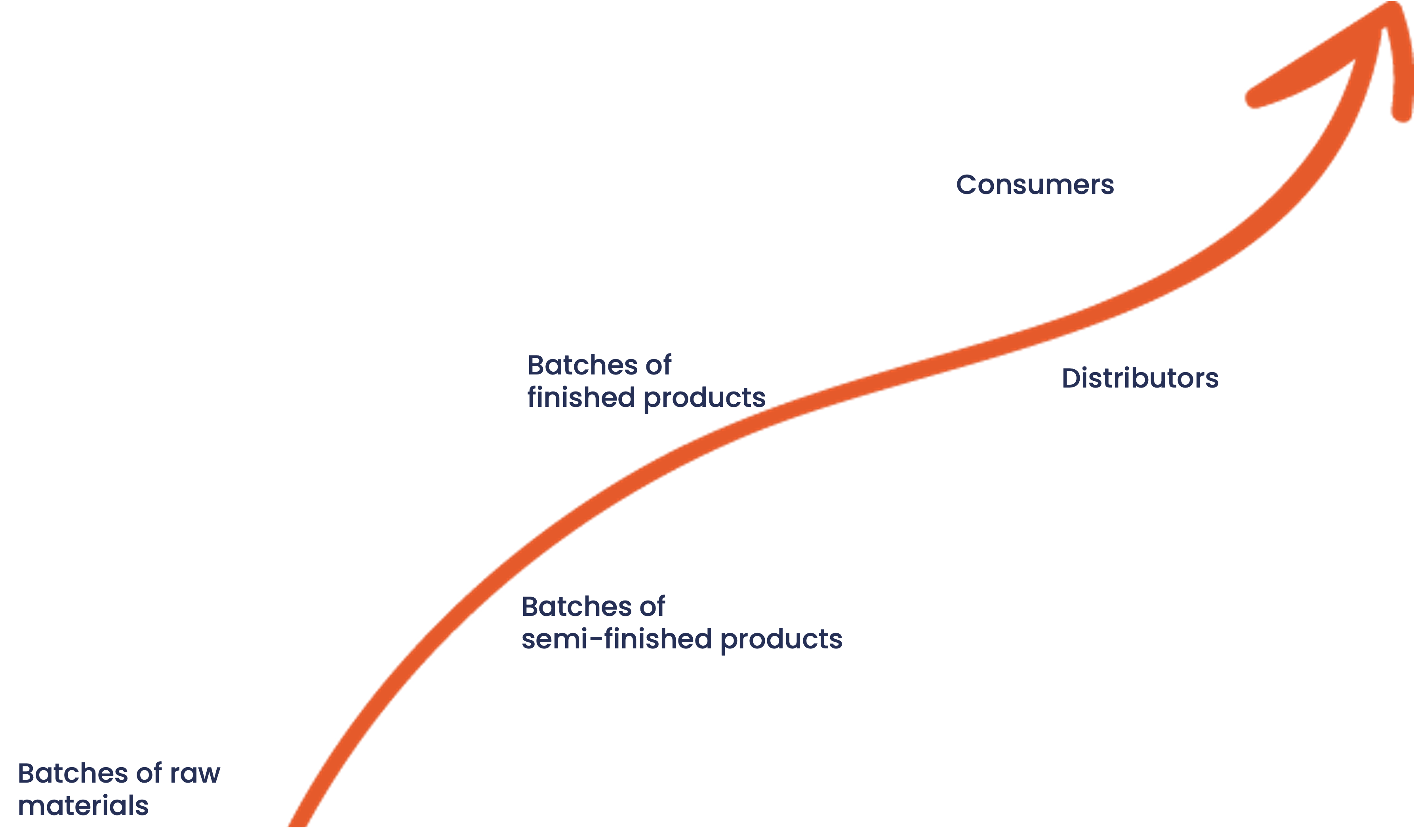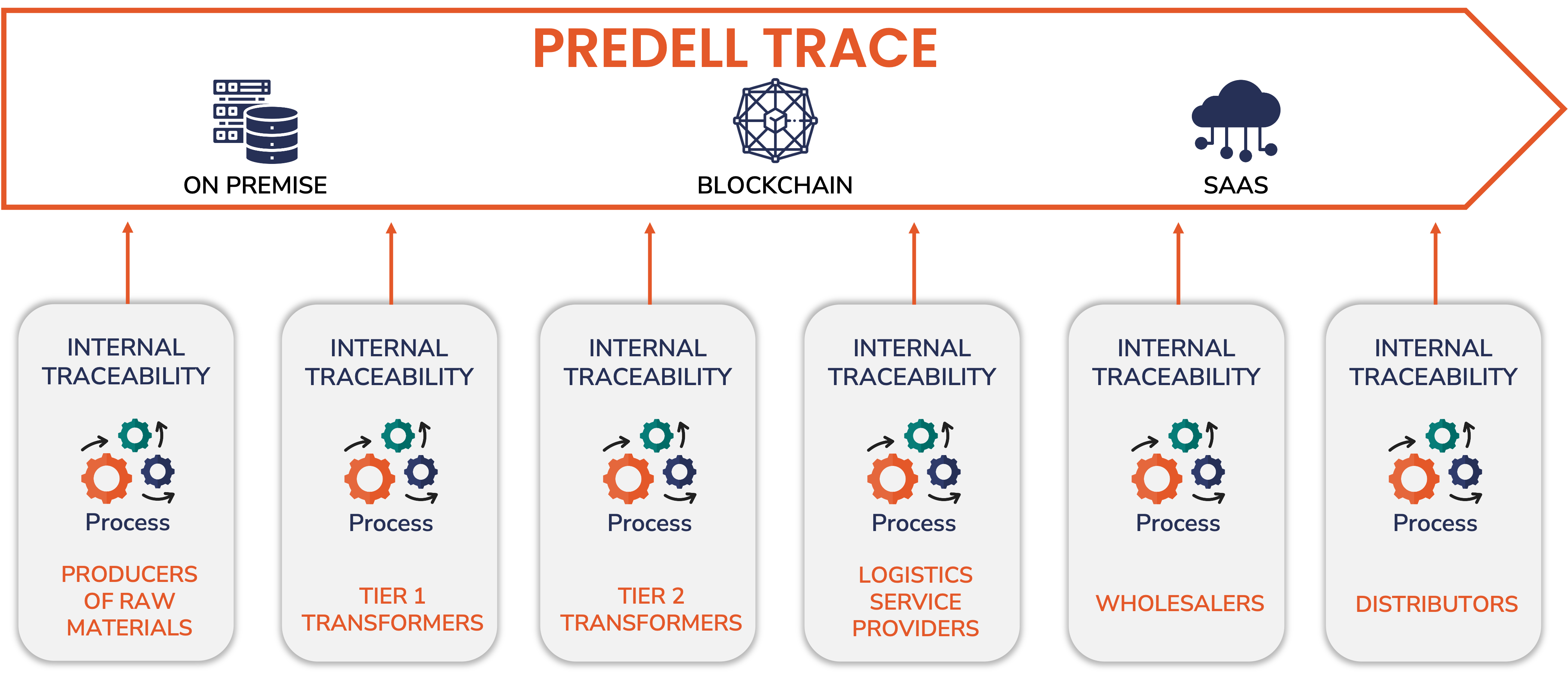Agri-food industry manufacturers face several important challenges regarding traceability. Due to the specific characteristics of their sector of activity, here are some of these challenges:

Food safety
The major challenge of the food industry is food safety. Traceability is essential to trace the origin of raw materials, ingredients, and food products throughout the supply chain, from production to distribution. It enables the identification and rapid resolution of problems related to food contamination, product recalls, and foodborne illness outbreaks.

Regulatory compliance
The sector is subject to strict regulations regarding food safety, environmental protection, animal welfare, the use of agricultural chemicals, etc. Standards in this area are numerous (EC 178/2002 for general principles of food law, EC 852/2004 specifying hygiene requirements for foodstuffs and also imposing traceability, EC 853/2004 requiring food chain operators to provide complete information with traceability requirements to prevent and control animal diseases).

Product quality and authenticity
Consumers are increasingly concerned about the quality and authenticity of the food products they buy. Traceability ensures that products meet quality standards and specifications, by tracking their trajectory from producers to end consumers. This helps maintain consumer confidence in food products.

Transparency and consumer trust
Consumers are increasingly concerned about the origin of the food they consume, the production methods used, and sustainability issues. Traceability enables the provision of transparent information to consumers about agricultural products, their origin, farming practices, and quality labels. This strengthens consumer trust and meets their growing expectations for transparency.

Supply chain management
The agri-food sector involves complex supply chains, from farms to end consumers. Traceability is necessary to track the flow of products throughout this chain, providing accurate information on production, processing, distribution, and sales stages. This facilitates effective supply chain management, process optimization, and cost reduction.

Risk management
Traceability helps farmers manage risks associated with agricultural production, such as plant diseases, pest infestations, extreme weather conditions, etc. By tracking the origin of products and recording farming practices, farmers can better identify the sources of problems and implement preventive measures to reduce risks.

Sustainability and social responsibility
Consumers are increasingly concerned about the environmental and social impact of the products they consume. Traceability can help track sustainable practices, such as the origin of ingredients, environmentally friendly production methods, fair working conditions, etc. It allows manufacturers to demonstrate their commitment to sustainability and social responsibility.
In summary, traceability is essential in the agri-food sector to ensure food safety, effective supply chain management, regulatory compliance, transparency towards consumers, and risk management. It also helps build consumer trust and meet growing expectations for sustainability and environmental responsibility in agriculture.
Predell Trace: a perfectly adapted response to these challenges
Predell Trace is an end-to-end traceability solution specifically designed to address any type of issue with great flexibility.
The architecture of Predell Trace is open to any type of traceability. It is based on a traceability engine that allows precise tracking of all events occurring during the circulation of individual objects or batches of products in the different locations of the supply chain.
The data processed by Predell Trace is automatically imported from the information systems of the traceability stakeholders (suppliers, transformers, logisticians, etc.). Whether it is VSEs or large companies, all these entities can transmit their Traceability data thanks to Predell solutions. The authenticity over time of the data used by Predell Trace can be certified thanks to a Blockchain connected to the platform.

Predell Trace has been specifically designed to address all these issues with great flexibility. The platform is based on a traceability engine that allows precise tracking of all Events (transfers between breeding units, vaccination, feeding, harvesting, processing, etc.), tracking applied to all types of batches and throughout the different Locations of its manufacturing process. Predell Trace can also ensure the traceability of objects not belonging to the physical world such as documents, transactions, or identifiers having their representation in any type of universe.

The data corresponding to the traceability events are communicated to Predell Trace by the information systems of the stakeholders in the value chain of agri-food products, and without any format constraint. The platform then processes them automatically, ensuring:

Their storage in a database according to a configurable model (it is for example possible to add CSR data).

The guarantee of data authenticity thanks to a blockchain.

The association of documents with any type of operation or object (certificate, control range, certification document, etc.).

Visual restitution on a web portal of traceability data, notably thanks to a multi-criteria search engine. These restitutions are carried out while respecting the authorizations linked to the different user profiles.
In “manual” mode, it is always possible to enter the necessary information for traceability through a user portal. This allows for assistance in establishing traceability links (correspondence between outgoing and incoming objects).
Our solution is based on a redundant and robust micro-services architecture that optimizes processing and offers availability adapted to user needs. Predell Trace is available in SaaS mode or license in a virtualized environment (Kubernetes).

